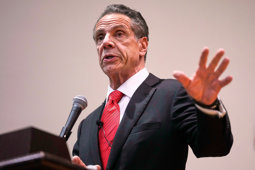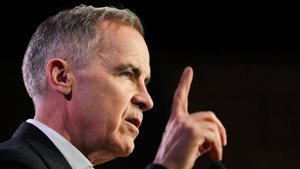
Trump’s “Big, Beautiful Bill” Gains Support for Border, Tax Reforms
Trump’s “big, beautiful bill” wins support from families and autoworkers, as border security, tax cuts, and land use spark debate.
Border Security and Families at the Center
President Donald Trump’s sweeping “big, beautiful bill” has become the focal point of debate on Capitol Hill and beyond, uniting families affected by border violence and workers from the nation’s auto industry while exposing divisions over the future of public lands. During a White House event Thursday, Trump stood alongside parents and relatives of Americans killed by illegal immigrants, vowing that his border bill would ensure “no more families are victimized” by what he described as past open border policies.
The president, joined by so-called “angel” families, recounted personal stories of loss and argued the new spending package includes the most consequential border legislation ever considered by Congress. The bill would bolster border patrol staffing, expand the border wall, and accelerate deportations to at least one million annually. Trump also detailed provisions to crack down on the fentanyl crisis by targeting foreign traffickers and imposing taxes on countries that allow narcotics to reach US borders. “We will end this invasion once and for all,” Trump promised, holding a photo of a victim for the audience.
Industry Support: Autoworkers and Economic Incentives
The legislation’s scope extends beyond border measures. At the same event, Trump introduced James Benson, a third-generation autoworker from Michigan and lifelong Democrat, who now backs the president due to new vehicle loan tax benefits. Trump announced a deduction of up to $10,000 for interest paid on auto loans for vehicles made and assembled in the US, a move designed to reward domestic manufacturing and keep “Michigan auto factories roaring.” The deduction applies to cars, trucks, vans, SUVs, and motorcycles built in America, and phases out for incomes above $100,000.
Trump noted, “If it was made someplace else, we don’t care.” He emphasized that the measure is part of a broader strategy to prioritize American workers and incentivize US production. The auto loan provision would be in effect for tax years 2025 through 2028, adding to a list of economic reforms targeting the middle class and traditional manufacturing sectors.
Land Policy and Legislative Debate
Despite broad support from families and industry, the bill faces opposition from some lawmakers over its approach to public lands. Representative Ryan Zinke, a former Interior secretary, reiterated his opposition to Senate proposals to sell federal lands as part of the reconciliation package. “The solution is not to sell public lands. The solution is better management,” Zinke posted, calling instead for improved stewardship and access.
Senator Mike Lee of Utah, a proponent of public land sales to address housing affordability, continues to advocate for their inclusion, though Senate rules have complicated the process. President Trump, however, remains focused on passing the bill in its entirety, pushing for a compromise that balances border, economic, and land management priorities.
Looking Ahead
With the legislation now before Congress, its fate remains uncertain. Supporters argue it represents a historic investment in border security, economic relief, and American industry, while critics remain wary of controversial provisions. Trump, for his part, is seeking swift action to fulfill promises on border safety and economic renewal. As debate intensifies, the bill’s outcome could shape US policy on immigration, industry, and land management for years to come.






